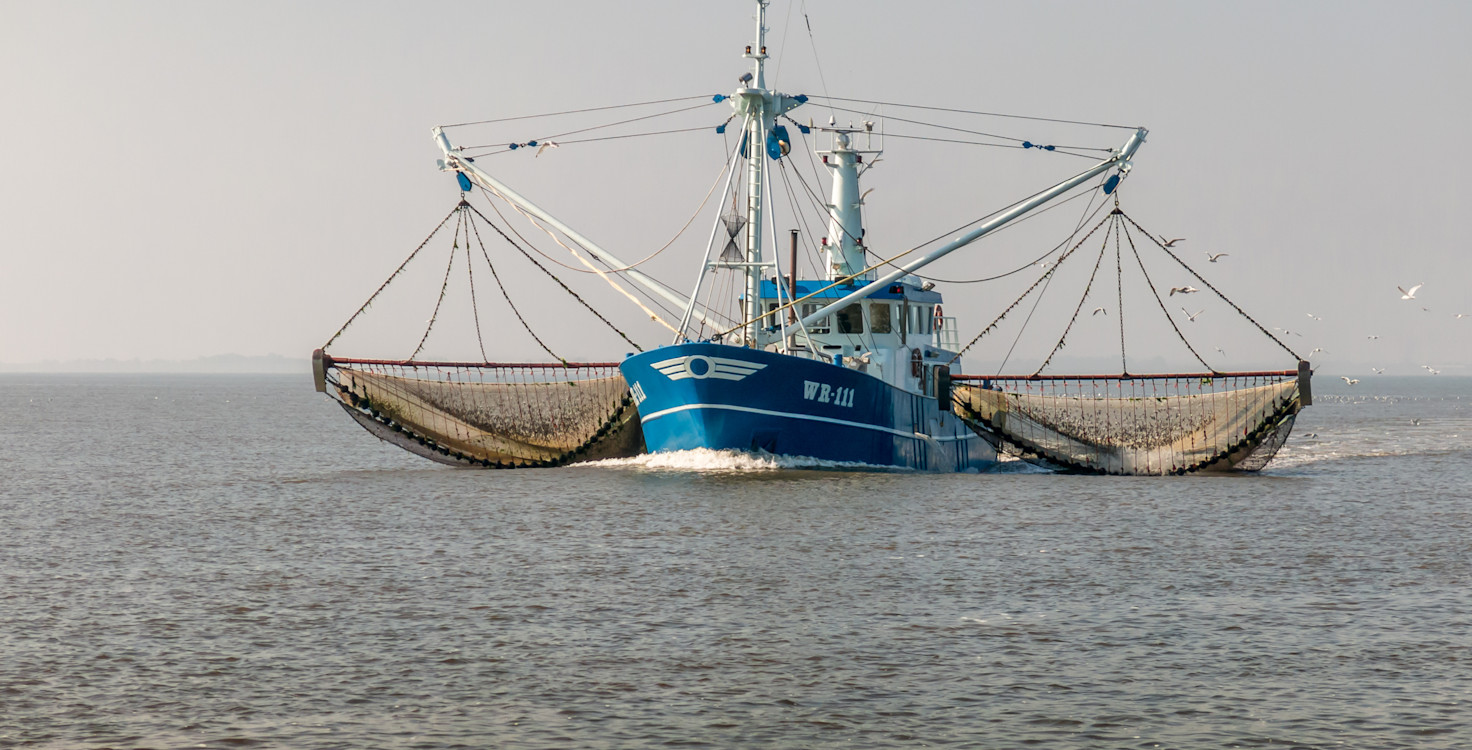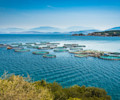US$6.5 trillion investors engage with seven major seafood companies to improve traceability in supply chains in response to material regulatory, reputational and operational risks linked to a lack of transparency.
All seven companies engaged acknowledge the material business risks of insufficient supply chain transparency; but none have published plans to implement robust traceability systems.
Only two currently have traceability commitments covering all operations, and none presently disclose progress against these commitments.
While challenges to implementing full-chain, digital, and interoperable traceability systems exist, active participation from all seven companies sets a promising precedent for potential improvements as the engagement continues into its second year.
The FAIRR Initiative has today published findings from a first-of-its-kind investor engagement aimed at ensuring seafood companies can trace the origin of all wild-caught and farmed seafood they sell and all aquaculture feed ingredients they procure.
Supported by 35 investors representing US$6.5 trillion in combined assets, including Nomura Asset Management and DNB Asset Management, the engagement seeks to address material business risks posed by insufficient supply chain transparency at seven* of the world’s largest publicly listed seafood companies**. These companies supply a significant proportion of the world’s seafood, selling to leading brands and retailers around the world.
The engagement is led by FAIRR, an investor network backed by investors representing US$75 trillion of assets under management, and is supported by World Wildlife Fund-US (WWF-US), UNEP FI’s Sustainable Blue Economy Finance Initiative, the World Benchmarking Alliance (WBA), and Planet Tracker.
A report revealing findings from the first year of this ongoing engagement shows that despite all seven companies acknowledging the growing regulatory, reputational and operational risks linked to a lack of supply chain transparency, none have published plans to implement full-chain, digital and interoperable traceability systems, exposing their shareholders to these risks.
To date, just two of the seven companies – Charoen Pokphand Foods and Thai Union – have established relatively strong, group-wide traceability commitments covering all seafood products for human consumption, and feed for farmed fish. The other five companies either do not yet have a traceability commitment or only partial traceability commitments covering certain operations and/or species. These results form the baseline against which the annual progress of this investor engagement will be measured in coming years.
Despite growth in the proportion of seafood certified by sustainability standards, consumers still can’t be certain the fish they eat is sustainably sourced. Opaque supply chains obscure links between some frequently consumed seafood products and real environmental and social issues, such as human rights violations, habitat destruction, and overfishing.
Globally seafood accounts for more global trade value than beef, pork and poultry combined. But a lack of transparency and traceability helps hide illegal, unreported, and unregulated (IUU) fishing, which comprises an estimated 20% of global wild-caught seafood, undermines the sustainability of fish stocks, and costs the global economy between US$15 billion and $36 billion annually.
Regulators are waking up to these risks – with a growing pool of laws requiring improved supply chain traceability coming into force in major seafood markets. For example, the Food Safety Modernization Act (FSMA) in the U.S. and the Fishery Products Distribution Act in Japan highlight the need for traceable supply chains that allow companies to demonstrate the safety, sustainability, and legality of their products.
Transparency will also support future EU Corporate Sustainability Reporting Directive (CSRD) disclosures, as well as voluntary frameworks including the Taskforce for Nature-related Financial Disclosures (TNFD). Traceability has become a must-have capability for businesses sourcing from global seafood value chains.
During its first year, this engagement established a series of traceability asks that, when achieved, will enable companies and investors to monitor and manage risks while unlocking sustainable opportunities. These asks include:
Setting time-bound commitments to implement full-chain traceability systems covering all operations;
Demonstrating sufficient ambition in the scope, depth and breadth of their traceability systems, in line with leading practice standards such as the Global Dialogue on Seafood Traceability (GDST); and
Disclosing how they will deliver on their commitments, including regular progress reporting.
The first phase of the seafood traceability engagement revealed promising levels of corporate engagement. As the initiative moves into Phase two in 2025 - and is reopened for additional investor signatories - FAIRR, its partners, and participating investors will continue to engage these companies, and increase their focus on providing technical support to drive measurable progress towards robust supply chain traceability.
Sofía Condés, Director of Investor Outreach, FAIRR, said:
“With 20% of global wild-caught seafood still coming from illegal, unregulated and unreported fishing activities, the true origin of fish remains unclear. For investors, this isn’t just a matter of transparency—it’s an escalating financial and reputational risk.
“As regulations tighten and consumer demand for greater accountability grows, companies that fail to implement robust traceability systems expose themselves to significant risk. Without these systems, they not only face compliance failures but also jeopardise their long-term profitability. Investors recognise that traceability isn’t just a regulatory necessity—it’s a strategic imperative for safeguarding consumer trust and long-term returns.”
Dai Yamawaki, Senior Portfolio Manager, Nomura Asset Management, said:
“Investors play a key role in highlighting the need for seafood companies to have stronger traceability systems. Through our engagement dialogues, companies seem aware of the need for better traceability, but awareness alone is not sufficient: we would welcome proactive plans towards better traceability and its disclosure, including the progress."
Karl Høgtun, Senior Analyst Responsible Investments, DNB Asset Management, said:
“Ensuring sustainable food systems is a critical global biodiversity challenge. Best practice requires robust traceability practices and a high degree of transparency.”
Eric Usher, Head of United Nations Environment Programme Finance Initiative, said:
“We are pleased to collaborate on the Seafood Traceability Investor Engagement, which underscores the critical role of investors in advancing sustainable practices in seafood supply chains. Full-chain, digital, and interoperable traceability is a foundational step for ensuring transparency and supporting investors in making informed decisions that drive sustainability and resilience across the sector that align with the Sustainable Blue Economy Finance Principles.”
François Mosnier, Head of Ocean team, Planet Tracker, said:
“A sustainability claim not backed by traceability is not worth much in the seafood sector. Despite progress and some encouraging commitments, our assessment shows that large listed companies are not taking enough action to mitigate the risks their investors are exposed to. This needs to change, and it is in everyone’s interest.”
Emily Howgate, Ocean Spotlight - Engagement Lead, World Benchmarking Alliance, said:
"Traceability is fundamental if the seafood sector is to be the future-food the world needs and address harms to marine life, violations of human rights, and risks to investors. Seafood companies must have clear, timely commitments for full-chain, digital and interoperable traceability — to which they can be held accountable. We need to see real progress, not just promises."
Lucy Holmes, Senior Director, Blue Finance, WWF-US, said,
“The long-term economic health of the seafood industry depends on the health of our oceans. But with ocean health in decline due to overexploitation, pollution and climate change, businesses and their investors are exposed to an increasing array of risks. Supply chain traceability is mission critical for companies and their investors to understand nature, climate and people-related impacts and dependencies, and to inform how they manage the associated risks and opportunities. World Wildlife Fund is committed to working with industry and finance to make supply chain transparency and traceability the norm.”
Lucy Holmes, Senior Director, Blue Finance, WWF-US, said,
“The long-term economic health of the seafood industry depends on the health of our oceans. But with ocean health in decline due to overexploitation, pollution and climate change, businesses and their investors are exposed to an increasing array of risks. Supply chain traceability is mission critical for companies and their investors to understand nature, climate and people-related impacts and dependencies, and to inform how they manage the associated risks and opportunities. World Wildlife Fund is committed to working with industry and finance to make supply chain transparency and traceability the norm.”
Notes to editor
*Charoen Pokphand Foods Pcl
Marubeni Corporation
Maruha Nichiro Corporation
Mitsubishi Corporation
Nissui Corporation
Nomad Foods Ltd
Thai Union Pcl
**By market capitalisation. The seven companies included in this engagement were chosen based on their relative sector influence (market capitalisation and seafood revenue) and their traceability-readiness (an above zero score on the WBA Seafood Sustainability Index), among other factors.
Media contact
For more information, including interviews and further comment, please contact:
Georgia Dalton, ESG Communications
Contact number: +44 (0)7798 751 529 | e: georgia@esgcomms.com
About FAIRR
The FAIRR Initiative is a collaborative investor network, founded by Jeremy Coller, with a membership of $75 trillion in collective assets of support. FAIRR works with institutional investors to define the material ESG issues linked to intensive livestock and fish farming systems and provide them with the tools necessary to integrate this information into their asset stewardship and investment decisions. This includes the Coller FAIRR Index, the world’s first comprehensive assessment of the largest global animal protein companies on environmental, social and governance issues. Visit www.fairr.org and follow @FAIRRInitiative.











